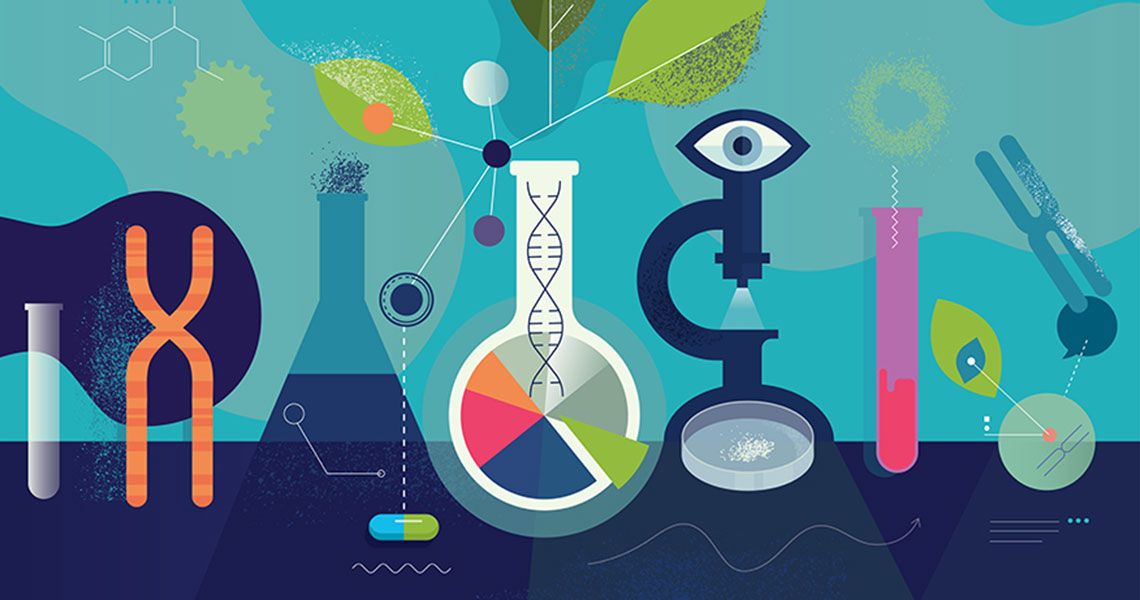The George Washington University’s Institute for Biomedical Sciences (IBS) recently recognized and celebrated its Class of 2022 PhD graduates. Among the 12 graduates, three completed their doctoral research with support from a prestigious National Institutes of Health (NIH) F31 fellowship and others earned private foundation fellowships, with one graduate serving as an NIH T32 predoctoral trainee. Half of this year’s graduates immediately transitioned to postdoctoral positions following graduation, while others sought positions in industry or other sectors.
“Although it’s just a coincidence that all of this year’s PhD graduates were women, diversity is the key to excellence,” according to Alison Hall, PhD, associate dean for research workforce development and professor of neurology at the GW School of Medicine and Health Science.
“If you have the same people with the same backgrounds asking the same questions, you really don’t make an effective research program,” Hall explained. “Expanding opportunities for potential researchers and enhancing diversity in the biomedical research community is an essential part of our program.”
The IBS programs align with research strengths at GW, namely cancer biology, genomics and bioinformatics, microbiology and immunology, neuroscience, pharmacology. and physiology. Each of the programs feature emphasis on interdisciplinary foundational courses, in addition to rotations in a primary area of study and career/ professional development. Following their grant-style qualifier, many students prepare fellowship-style grant proposals, outlining their original experimental design and analysis, to foster the skills necessary to succeed as a scientist in either academia or industry.
Congratulations to all of the IBS Class of 2022 PhD Graduates.
Hye Mee (Amy) Hwang earned her PhD in neuroscience. To support her work on neurobehavioral deficits in fetal alcohol spectrum disorder, Hwang won an NIH F31 Ruth L. Kirschstein Predoctoral Research Service Award.
Erin Bonner successfully defended her PhD in cancer biology with support from the Isabella Kerr Molina Foundation Fellowship Award and the American Association of Neurological Surgeons, in recognition of her work in characterizing histone mutations in pediatric brain tumors.
Kaitlin Garofano earned her PhD in molecular medicine, focusing on differences in platelet transcriptomes that could contribute to racial disparities in heart disease and cancer.
Kelly Murphy defended her PhD in molecular medicine, with dissertation work on a mouse model to study therapies for facioscapulohumeral muscular dystrophy.
Stephanie Gomez defended her dissertation in microbiology and immunology with support from a F31 Ruth L. Kirschstein Predoctoral Research Service Award for research centered on in immunotherapy for ovarian cancer.
Annika Balraj defended her PhD dissertation in neuroscience, on the basis of her work in retinal ganglion cell myelination and the neurobiology of vision.
Nicole Bonan, an NIH T32 Cancer Biology and Alex’s Lemonade Stand’s POST program fellow, earned her PhD in cancer biology for her research using nanomaterials to treat tumors.
Maria del Mar Gracia Hernandez defended her PhD in cancer biology for her work on immune therapies for treating melanoma.
Julie Ahn defended her PhD in neuroscience on the basis of her research on the central nervous system in multiple sclerosis, with support from a prestigious F31 National Research Service Award and the Cosmos Club Foundation.
Kristen Kocher defended her PhD in genomics and bioinformatics with work on epigenetic markers of stress during pregnancy, and potential long-term impacts of the Covid-19 pandemic.
Tessa Knox earned a PhD in cancer biology for her work on the tumor immune microenvironment.
Debbie Ledezma earned her doctoral degree in microbiology and immunology for her research exploring photothermal therapy as a mechanism to treat solid tumors with support from the Cosmos Club Foundation.



